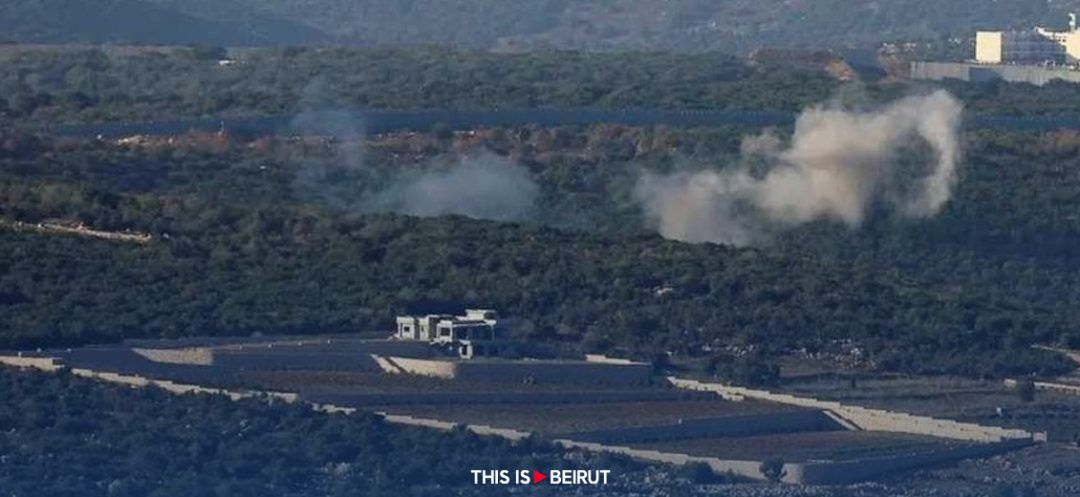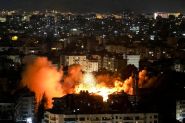- Home
- War in the Middle East
- Israel Threatens to 'Enter Lebanon After Rafah'

While Israeli media reported on Thursday, citing an official, that Israel “will enter Lebanon after completing the Rafah operation,” Washington reiterated that “restoring calm to the Israeli-Lebanese border is a priority” for the United States.
UNIFIL echoed similar concerns over the escalation on Lebanon’s southern front between Hezbollah and Israel, urging “all parties to lay down their arms and start working towards a lasting political and diplomatic solution.”
The Israeli Broadcasting Corporation (IBC) also reported that “yesterday, the Commander of the Israeli Armed Forces in the North, Uri Gordin, announced that Israeli forces are ready to act on the Lebanese border.”
Regarding developments on the front with Lebanon, the Israeli newspaper Haaretz headlined that “a deadlock in negotiations could lead to a flare-up on the border with Lebanon.”
These statements, oscillating between caution and readiness, followed the Security Council’s adoption of the first UN resolution calling for “an immediate ceasefire in Gaza” on Monday, amidst the conflict that has been ongoing for over five months. However, the situation on the ground remains unchanged, with escalation persisting both in Gaza and on Lebanon’s southern front.
In a move contradicting Washington’s wish for calm, the IBC reported that “the Israeli army carried out a surprise maneuver today (Thursday) to test preparations for an all-out war in the North with Lebanon.” Israel’s Channel 12 confirmed that “the military exercise focused on different scenarios and the army’s plans for an all-out war with Lebanon,” indicating the seriousness of the situation.
Meanwhile, and despite continued exchanges of fire between Hezbollah and Israel, a relative calm prevailed Thursday, compared to the deadly clashes of the previous days. The Israeli army announced that it had “eliminated two Hezbollah cells in southern Lebanon,” while an intercepted missile explosion was recorded over Khiam.
For its part, Hezbollah claimed responsibility for several attacks on Israeli positions, including Ramtha, Samaka and Kfarchouba, and announced the death of two of its fighters.
The last couple of days witnessed the deadliest violence since Hezbollah opened the southern front “in support” of Gaza on October 8. Seven people were killed in Hebbariyeh on Tuesday night in an Israeli raid, followed by nine more, including four in Naqoura and Tayr Harfa, in similar raids early Wednesday evening.
UNIFIL echoed similar concerns over the escalation on Lebanon’s southern front between Hezbollah and Israel, urging “all parties to lay down their arms and start working towards a lasting political and diplomatic solution.”
The Israeli Broadcasting Corporation (IBC) also reported that “yesterday, the Commander of the Israeli Armed Forces in the North, Uri Gordin, announced that Israeli forces are ready to act on the Lebanese border.”
Regarding developments on the front with Lebanon, the Israeli newspaper Haaretz headlined that “a deadlock in negotiations could lead to a flare-up on the border with Lebanon.”
These statements, oscillating between caution and readiness, followed the Security Council’s adoption of the first UN resolution calling for “an immediate ceasefire in Gaza” on Monday, amidst the conflict that has been ongoing for over five months. However, the situation on the ground remains unchanged, with escalation persisting both in Gaza and on Lebanon’s southern front.
In a move contradicting Washington’s wish for calm, the IBC reported that “the Israeli army carried out a surprise maneuver today (Thursday) to test preparations for an all-out war in the North with Lebanon.” Israel’s Channel 12 confirmed that “the military exercise focused on different scenarios and the army’s plans for an all-out war with Lebanon,” indicating the seriousness of the situation.
Meanwhile, and despite continued exchanges of fire between Hezbollah and Israel, a relative calm prevailed Thursday, compared to the deadly clashes of the previous days. The Israeli army announced that it had “eliminated two Hezbollah cells in southern Lebanon,” while an intercepted missile explosion was recorded over Khiam.
For its part, Hezbollah claimed responsibility for several attacks on Israeli positions, including Ramtha, Samaka and Kfarchouba, and announced the death of two of its fighters.
The last couple of days witnessed the deadliest violence since Hezbollah opened the southern front “in support” of Gaza on October 8. Seven people were killed in Hebbariyeh on Tuesday night in an Israeli raid, followed by nine more, including four in Naqoura and Tayr Harfa, in similar raids early Wednesday evening.
Read more



Comments